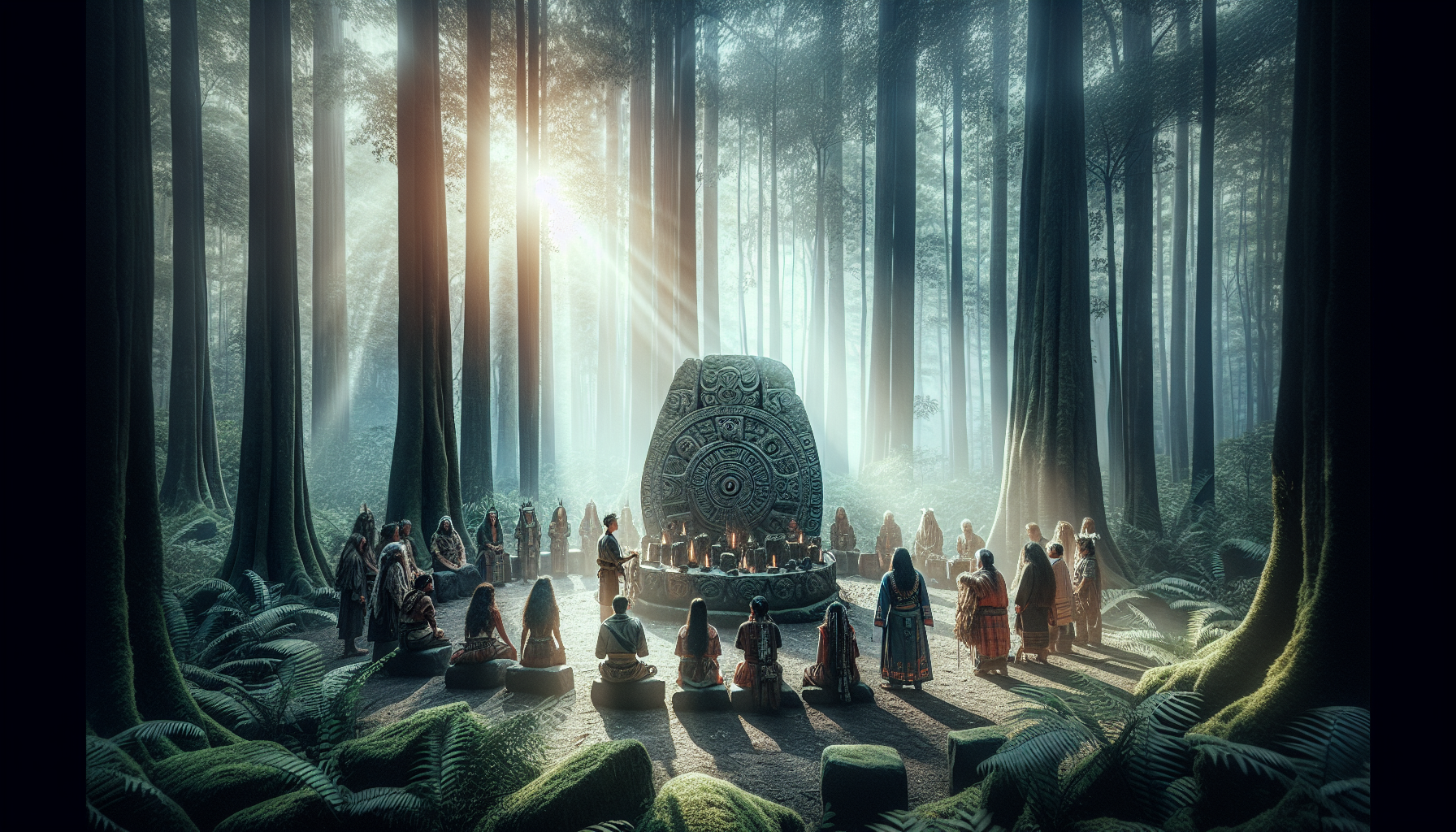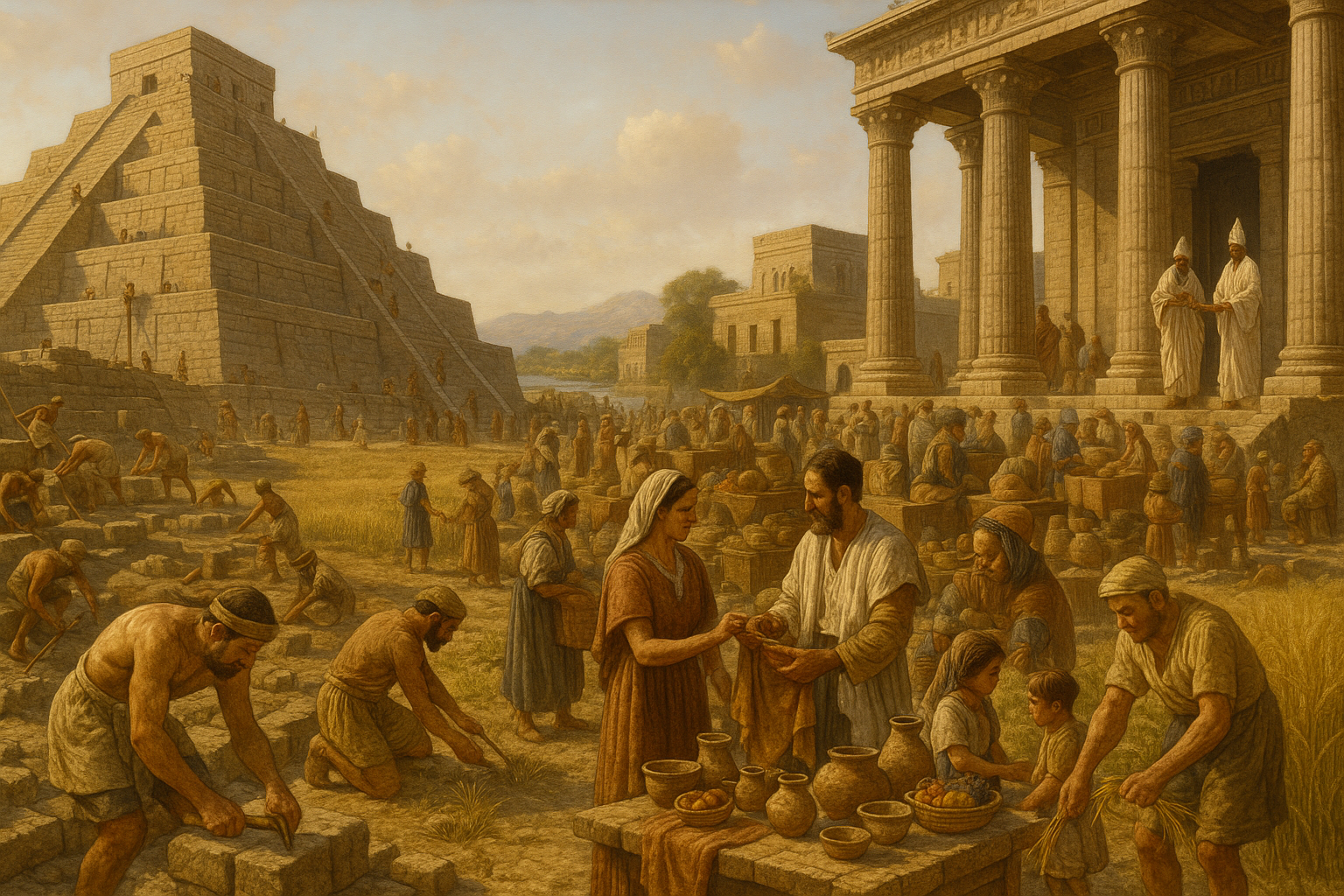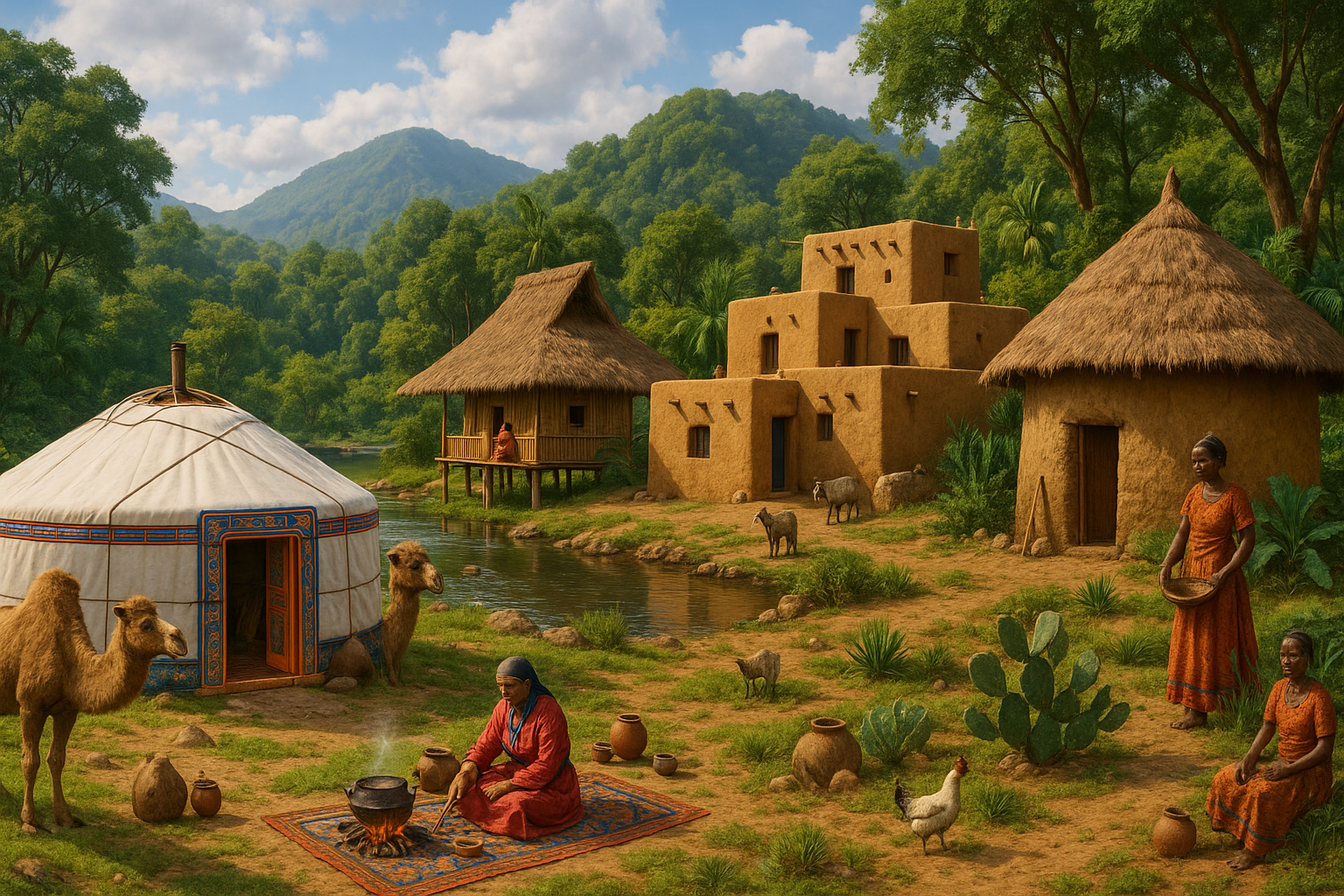In a world that constantly seeks to unravel the mysteries of life and death, the concept of reincarnation stands as one of the most intriguing puzzles in human history. It is a belief that transcends cultures, religions, and centuries, offering a unique perspective on what happens to the soul after death. The idea that we live multiple lives, each one a continuation of the last, challenges our understanding of identity, purpose, and existence itself. But what is it about reincarnation that captivates the imagination of so many? And why do these beliefs persist, even in the face of modern scientific skepticism? 🤔
At its core, reincarnation suggests that life is not a linear journey but a cyclical one. This belief posits that after death, the soul is reborn into a new body, carrying with it the lessons, traumas, and unfinished business of previous lives. Such a notion offers both comfort and complexity, providing answers to existential questions while simultaneously raising new ones. Is reincarnation a means of spiritual evolution, a path to enlightenment, or merely a mechanism of the universe to ensure balance and justice? These questions have fueled countless debates and inspired a rich tapestry of stories, rituals, and traditions across the globe.
In this exploration of reincarnation beliefs, we will delve into the diverse cultural and religious interpretations of this enigmatic concept. From the ancient philosophies of Hinduism and Buddhism, which view reincarnation as a fundamental tenet, to the mystical traditions of the Druids and the esoteric teachings of the New Age movement, each perspective offers a unique lens through which to view the cycle of life, death, and rebirth. We will also examine how reincarnation beliefs influence contemporary society, shaping attitudes towards life, morality, and the afterlife. 🌌
Moreover, this article will address the scientific inquiries and anecdotal evidence that continue to spark curiosity and debate. We will explore compelling case studies, such as children who claim to remember past lives, and discuss the psychological and neurological theories that attempt to explain these phenomena. By the end of this journey, you will gain a deeper understanding of why reincarnation remains a powerful and enduring belief, resonating with millions around the world. Join us as we unveil the mysteries of reincarnation and discover the profound connections that link us across lifetimes. 🌿
The Origins of Reincarnation Beliefs
Reincarnation, a concept deeply embedded in the cultural and spiritual fabric of many societies, offers a fascinating lens through which we can explore human belief systems and philosophies. Rooted in ancient traditions, the idea that souls can transcend mortal boundaries and inhabit new forms continues to captivate and inspire. These beliefs, while varied, share core elements that echo across diverse cultures and time periods.
Historically, reincarnation beliefs are most prominently associated with Eastern religions, such as Hinduism, Buddhism, and Jainism. In Hinduism, the cycle of death and rebirth is known as samsara, governed by the law of karma. This principle suggests that one’s actions in a current life directly influence their future existence. Similarly, in Buddhism, the cycle of rebirth is pivotal, but the emphasis is on achieving nirvana, a state of liberation from the cycle. Jainism also adheres to the concept of reincarnation, focusing on the soul’s journey toward purification and liberation.
The Role of Karma in Reincarnation
Karma plays a crucial role in shaping the beliefs surrounding reincarnation. It is the moral compass guiding the journey of the soul, impacting not only future lives but also the current life experience. In Hinduism, karma is considered a cosmic law of cause and effect, where every action, thought, and intention creates energy that will manifest in future experiences. This understanding encourages ethical living and mindfulness, as individuals are constantly aware that their current deeds will affect their future.
Similarly, in Buddhism, karma is integral to understanding the cycle of rebirth. However, Buddhists emphasize the impermanence of the self and aim to transcend the cycle through enlightenment. The law of karma, in this context, is not seen as punitive but as a natural law that guides spiritual development. Practitioners strive to accumulate good karma through compassion, wisdom, and moral living, aspiring to eventually escape the cycle of samsara.
These beliefs are not merely esoteric concepts but have practical implications in the daily lives of adherents. They influence decision-making, ethical standards, and interpersonal relationships. As you explore these ideas further, consider how they might manifest in different cultural contexts and what they reveal about human nature and the quest for understanding life and death.
Reincarnation Across Different Cultures
Reincarnation beliefs are not monolithic; they are as diverse as the cultures that hold them. While Eastern philosophies often dominate discussions on reincarnation, many other cultures have their own unique interpretations and narratives surrounding the concept.
In African spiritual traditions, such as those practiced by the Yoruba people, reincarnation is seen as a return of ancestors to the family lineage. This cycle is not merely physical but spiritual, with ancestors providing guidance and protection to the living. These beliefs are reflected in rituals and ceremonies that honor the ancestors and acknowledge their ongoing presence in the community.
Similarly, in Native American cultures, the belief in reincarnation is tied to the interconnectedness of all life. Many tribes hold that the soul returns in different forms to learn lessons and contribute to the community’s spiritual well-being. This belief emphasizes harmony with nature and respect for all living beings, as each is considered a potential vessel for the soul.
Reincarnation in Modern Spirituality
In contemporary spirituality, reincarnation continues to find resonance among individuals seeking meaning and connection beyond traditional religious frameworks. New Age movements often incorporate reincarnation as part of their spiritual practices, blending elements from various traditions to create personalized belief systems.
For many, reincarnation offers a comforting narrative that addresses existential questions about life, death, and the afterlife. It provides a framework for understanding life’s challenges and encourages personal growth and self-discovery. This modern reinterpretation of reincarnation often emphasizes personal empowerment and the soul’s evolution across lifetimes.
The enduring appeal of reincarnation across cultures and eras underscores its profound impact on human consciousness. By examining these diverse beliefs, we gain insight into the universal quest for meaning and the timeless nature of the soul’s journey.
Scientific Perspectives on Reincarnation
While reincarnation is primarily a spiritual concept, it has also attracted the attention of scientific communities interested in exploring its potential validity. Researchers have approached the topic from various angles, including psychology, parapsychology, and anthropology, each contributing unique insights into the phenomenon.
One of the most notable figures in reincarnation research is Dr. Ian Stevenson, a psychiatrist who spent decades studying cases of children claiming to remember past lives. His work, documented in books like “Twenty Cases Suggestive of Reincarnation,” involves meticulous case studies that detail children’s past-life memories, behaviors, and phobias. While his findings are controversial and not universally accepted, they have sparked significant interest and debate within the scientific community.
In addition to psychological studies, parapsychology has also explored reincarnation through the lens of consciousness and its potential to exist independently of the physical body. Researchers in this field often examine near-death experiences and past-life regression therapy as potential evidence for reincarnation. While these methods face skepticism from mainstream science, they continue to captivate those who seek to understand consciousness beyond material limitations.
The Role of Cultural Context in Reincarnation Research
Cultural context plays a crucial role in reincarnation research, influencing how cases are interpreted and understood. In cultures where reincarnation is widely accepted, reports of past-life memories are more common and often integrated into the community’s belief systems. Researchers must navigate these cultural nuances to avoid imposing external interpretations that might not align with the subject’s worldview.
Furthermore, cross-cultural studies can offer valuable insights into reincarnation beliefs and their manifestations. By comparing cases and narratives across different societies, researchers can identify patterns and commonalities that may point to underlying truths about the human experience.
The scientific exploration of reincarnation, while still in its infancy, continues to challenge conventional understandings of consciousness and identity. As you delve deeper into these studies, consider how they expand the boundaries of knowledge and invite us to reconsider what it means to be human.
Popular Culture and Reincarnation
Reincarnation has found its way into popular culture, influencing literature, film, and television. This pervasive presence reflects society’s enduring fascination with the concept and its potential implications for identity and the human experience.
In literature, reincarnation themes are often explored through narratives that span multiple lifetimes, offering readers a glimpse into characters’ evolving souls. Works like David Mitchell’s “Cloud Atlas” weave intricate stories that connect past and present, challenging readers to consider the interconnectedness of all beings. Such stories not only entertain but also provoke thought about the nature of existence and the cyclical journey of the soul.
Film and television have also embraced reincarnation as a compelling narrative device. Movies like “The Fountain” and “The Curious Case of Benjamin Button” explore themes of time, love, and the soul’s journey across different lives. These visual stories captivate audiences by offering a cinematic exploration of reincarnation’s mysteries and emotional depth.
Reincarnation in Music and Art
Beyond literature and film, reincarnation also resonates in music and art, where artists use their mediums to explore and express these timeless themes. Songs often reference reincarnation as a metaphor for transformation and renewal, evoking the idea of rebirth in both personal and universal contexts.
Artistic expressions of reincarnation can be found in paintings, sculptures, and installations that depict cycles of life, death, and rebirth. These works invite viewers to reflect on their own experiences and consider the deeper connections between all forms of life.
By examining reincarnation through the lens of popular culture, we gain a broader understanding of its impact on human imagination and creativity. These cultural expressions not only reflect society’s curiosity but also contribute to the ongoing dialogue about the mysteries of life and existence.
Reincarnation Beliefs: A Comparative Analysis
Understanding the varied beliefs surrounding reincarnation requires a comparative analysis of how different cultures interpret and integrate this concept into their spiritual and philosophical frameworks. The following table highlights key aspects of reincarnation beliefs across major traditions:
| Tradition | Concept of Reincarnation | Role of Karma | Ultimate Goal |
|---|---|---|---|
| Hinduism | Samsara (cycle of death and rebirth) | Karma dictates future lives | Moksha (liberation from cycle) |
| Buddhism | Rebirth in samsara | Karma influences rebirth | Nirvana (end of suffering) |
| Jainism | Cycle of birth, death, and rebirth | Karma accumulates as karmic particles | Kevala (pure knowledge and liberation) |
| Ancient Greek Philosophy | Immortal soul undergoing multiple lives | Ethical living impacts future existence | Union with divine reality |
| Indigenous Traditions | Ancestral spirits returning | Respect for nature and community harmony | Spiritual guidance and balance |
As you review the table, note the diverse interpretations and goals associated with reincarnation across different traditions. This comparative approach underscores the universal appeal of reincarnation and its potential to inspire reflection and transformation.
For a visual exploration of reincarnation concepts, consider watching this insightful video: “The Mysteries of Reincarnation” by Thoughty2. The video delves into various cultural beliefs and scientific perspectives, offering a comprehensive overview of reincarnation’s enduring impact.
Conclusion and Further Exploration
As you continue your exploration of reincarnation beliefs, consider how these concepts resonate with your own experiences and worldview. Reincarnation offers a profound framework for understanding the cyclical nature of existence and the soul’s journey across time and space.
Engaging with these diverse beliefs encourages empathy, open-mindedness, and a deeper appreciation for the interconnectedness of all life. Whether you approach reincarnation from a spiritual, philosophical, or scientific perspective, the mysteries it presents invite ongoing inquiry and reflection.
For further exploration, consider diving into texts that explore reincarnation in greater depth or attending lectures and workshops that offer new insights and perspectives. The journey of understanding reincarnation is as limitless as the concept itself, inviting you to discover new dimensions of knowledge and meaning.

Conclusion
Conclusion: The Everlasting Tapestry of Reincarnation Beliefs
Throughout this exploration of “Clan Connections: Unveiling the Mysteries of Reincarnation Beliefs,” we have journeyed through the rich tapestry of human belief systems that transcend time, geography, and culture. Reincarnation, as a concept, captures the imagination with its promise of life beyond death and continuity of the soul. We have delved into how various cultures interpret reincarnation, its role in shaping personal and collective identities, and the profound philosophical questions it raises.
One of the central threads in our discussion was the cultural variations in reincarnation beliefs. From the intricate karmic cycles of Hinduism to the ancestral reverence in African spiritual traditions, reincarnation presents itself in myriad forms. This diversity underscores not only the universality of the quest for meaning but also the unique lenses through which different societies view the afterlife. Each interpretation, while distinct, shares a common human yearning for continuity and understanding of existence beyond the corporeal realm.
The psychological and philosophical dimensions of reincarnation were another focal point. We examined how beliefs in reincarnation can provide comfort in the face of mortality, offering a framework for understanding life’s challenges and injustices. Philosophically, reincarnation invites us to ponder deep ethical questions about the self, identity, and moral responsibility across lifetimes. It encourages a reflective stance on how our actions ripple through time, potentially impacting future existences. Such reflections can inspire a more compassionate and accountable approach to our current lives.
Moreover, the intersection of reincarnation beliefs with modern science and psychology presents an intriguing area of exploration. Although empirical evidence remains elusive, studies in past-life memories and consciousness expand our understanding of human cognition and its mysteries. The dialogue between ancient beliefs and contemporary scientific inquiry enriches our appreciation of both, fostering a more holistic view of human consciousness.
In light of these discussions, the importance of respecting and understanding reincarnation beliefs becomes evident. These beliefs not only shape cultural practices and rituals but also influence ethical frameworks and interpersonal relationships. As global citizens, embracing this diversity enhances our empathy and opens pathways for cross-cultural dialogue and learning.
Finally, I encourage you, dear reader, to reflect on what you have learned and how it resonates with your personal beliefs and experiences. Consider discussing these ideas with others to foster deeper understanding and connection. Share this exploration with friends and communities who might find value in these insights. By doing so, you contribute to a broader conversation that honors the rich tapestry of human belief and the universal quest for meaning.
Feel free to explore further on the topic through these active resources:
1.
2.
3. Psychological Perspectives on Reincarnation
These links provide a deeper dive into specific aspects of reincarnation, offering more comprehensive insights and current research. Let us continue to unravel these mysteries with curiosity and respect, understanding that each belief system offers a unique perspective on the grand question of existence. 🌍
—
By weaving these threads of understanding, we contribute to the vast, colorful tapestry of human thought, ensuring that the mysteries of reincarnation continue to inspire and connect us across time and cultures. Your engagement and reflections keep this dialogue alive and evolving. Thank you for being part of this journey.
Toni Santos is a visual storyteller and experimental artisan whose work explores the strange frontiers where science meets art. Fascinated by the forgotten, the obscure, and the wonderfully absurd, Toni brings bizarre scientific experiments to life through provocative visual narratives and handcrafted creations that blur the line between curiosity and discovery.
His journey is rooted in a passion for the eccentric side of science — from electric shocks on cadavers to botany in hostile environments, from Victorian medical oddities to animal behavior gone rogue. Each project Toni undertakes sheds light on real (and sometimes questionable) scientific ventures that push the boundaries of human understanding.
With a background in visual design and hands-on craftsmanship, Toni blends artistic precision with conceptual boldness. His creations aren’t just decorative — they provoke, disturb, and invite the viewer to reconsider what counts as science, progress, or even sanity. Often inspired by true experiments — like galvanic resurrection, psychological endurance tests, or 19th-century pseudo-science rituals — Toni’s work reanimates these bizarre chapters of history with aesthetic intrigue and critical reflection.
As the creative force behind Vizovex, Toni invites you to explore a world where the strange becomes symbolic, the grotesque becomes beautiful, and every experiment tells a story worth unearthing.
His work pays tribute to:
The brilliant madness of forgotten experiments
The symbolic power of science at the edge of reason
The beauty in questioning what we think we know
Whether you’re a curious mind, a lover of scientific history, or simply drawn to the uncanny, Toni welcomes you to explore a realm where aesthetics and absurdity collide — one experiment, one mystery, one creation at a time.





